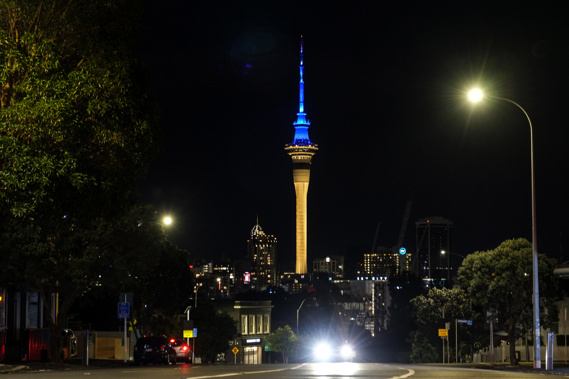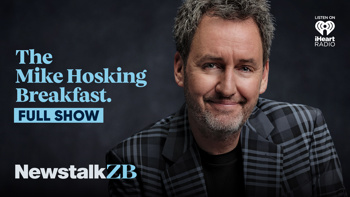
A New Zealand security studies professor has claimed it's unlikely the Government would end up following through with providing lethal aid to Ukraine, despite reports it had requested advice on the prospect of doing so.
The Herald reported yesterday that the new Government was considering a new round of assistance to the war-torn country and had asked officials to present it with advice on possible options.
The assistance would be the first round of aid since last May, breaking a long drought in support for Ukraine’s self-defence. The Herald understood the new Government was also looking at sending so-called “lethal aid” to Ukraine, something the former government was not so keen on.
According to Senior Fellow of Massey University, Centre for Defence and Security Studies, John Battersby, the notion of New Zealand providing such aid wouldn't be much of a shift from the country's ideals.
"I think New Zealand has always been a proponent of collective security going back to basically World War I," he told The Mike Hosking Breakfast with Tim Dower.
"We're a small country, we stand up for democratic rights and, for us, we oppose the use of force to change borders and national relations. So basically it's the same decision as ones we've made previously - this time, it looks like the Government has asked for a range of options, which I think is sensible."
While lethal aid was on the table, which Battersby said he was surprised wasn't tabled the first time around, he admits it's unlikely to become anything more.
"I would say that's unlikely to go ahead based on what we may have, and whether it's any use," he said.
"We're considering it, but I think we're more likely to go where our strengths are - which is in training and advice and humanitarian [work]. That's where I think we'll go, so I'm not sure we'll see a change but we may do."
He said the pros and cons of providing lethal aid hadn't changed from when the war first sparked at the beginning of 2022.
New Zealand's approach needed to be, according to the professor, to provide enough support to be noticed by its allies while not enough to make any new enemies - or at least not become noticed by the enemies it might already have.

"So basically what we're looking to achieve is to stand up for what New Zealand's interests basically are, which is the non-use of force in national affairs and the rights of democratic states and all the rest of it - and to achieve those goals by what we do," said Battersby.
"If we think the situation has changed or gone up a level, or circumstances are looking a bit bleaker and we need to do a bit more, then that's probably what's going to motivate a desire for a little bit of a change-up.
"I'm not sure we've seen that as yet."
The two-year war between Ukraine and Russia recently saw Ukraine fighters shell the Russian-occupied region of Donetsk, killing 25 people.
Donetsk was one of four Ukrainian regions that Russia annexed illegally in 2022, months after Moscow launched its full-scale invasion. Russia’s Foreign Ministry blamed Ukraine and described the strike as a “terrorist attack”.
On Sunday, a fire broke out at a chemical transport terminal at Russia’s Ust-Luga port following two explosions, regional officials said. Local media said the Baltic Sea port, 165km southwest of St Petersburg, had been attacked by Ukrainian drones, causing a gas tank to explode.
The blaze was at a site run by Russia’s second-largest natural gas producer, Novatek.
In a statement to Russian media outlet RBC, the company blamed the fire on an “external influence”, saying operations at the port were paused.
Yuri Zapalatsky, the head of the Kingisepp district on the Gulf of Finland where the port is located, said there were no casualties but the area was on high alert.
Russian officials previously confirmed a Ukrainian drone had been downed on the outskirts of St Petersburg on Thursday.
Take your Radio, Podcasts and Music with you









